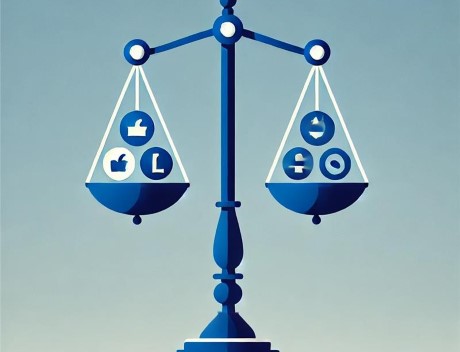Digital Markets Act
Regulation 2022/1925 on contestable and fair markets in the digital sector

Category
Status
EU
Date of application was 2 May 2023.
EEA
Pending. The Commission has marked the Regulation as EEA-relevant.
Norway
Pending.
Scope
The Digital Markets Act (“DMA”) requires that the big tech companies, the so called “gatekeepers”, complies with the DMA in the provision of their core platform services. The classification as gatekeeper follows a set of objective criteria:
- Firstly, the service provider needs to have a significant impact on the internal market. The DMA sets a high threshold before the condition of significant impact is presumed to be met (annual turnover in the EU equal to or above EUR 7,5 billion in each of the last three years or a market value of EUR 75 billion in the last year).
- Secondly, the service provider must deliver a core platform service which is an important gateway for business users to reach end users. Again, the threshold is high before the condition is presumed to be met (45 million monthly active end users in the last year and over 10 000 yearly active business users).
- Thirdly, the service provider needs to hold a strong and durable position in the market.
The core platform services covered by the DMA are explicitly specified and include online intermediation services, search engines, social networks, video-sharing services, web browsers and cloud computing services, among others.
Note that the EU Commission is granted the authority to classify service providers as gatekeepers on the basis of a market investigation even if the abovementioned market thresholds are not met.
Relevance
It is expected that classification as a gatekeeper will be reserved for the big tech companies. As of now, the EU Commission has designated Alphabet, Amazon, Apple, Booking, ByteDance, Meta and Microsoft as gatekeepers in relation to certain services. While we do not expect many Norwegian companies to be subject to the DMA, a proper understanding of the DMA will be important in order to protect the legal rights of Norwegian companies, either as competitors or customers of the gatekeepers. The DMA is likely to be implemented in Norway through a new act.
Key obligations
In order to ensure open and fair digital markets, the DMA introduces a set of obligations and prohibitions that gatekeepers must comply with.
Gatekeepers must allow business users access to their data and make it easy for consumers to switch platforms or services and ensure that their messaging services are interoperable with those of competitors, facilitating a broader choice for consumers.
Further, to foster a more competitive digital environment, the Regulation restricts gatekeepers from ranking their own products or services higher than those of their competitors on their platforms, and from pre-installing certain software applications and setting their own services as the default. Additionally, gatekeepers are not allowed to force users to sign up for additional services as a condition for using their platform.
The Regulation also imposes a general ban on retaliating against users who take advantage of the rights and options provided by the DMA.
Non-compliance with the DMA may result in significant fines (up to 20% of the gatekeeper’s total worldwide annual turnover) or structural obligations, such as the sale of (parts of) a business.